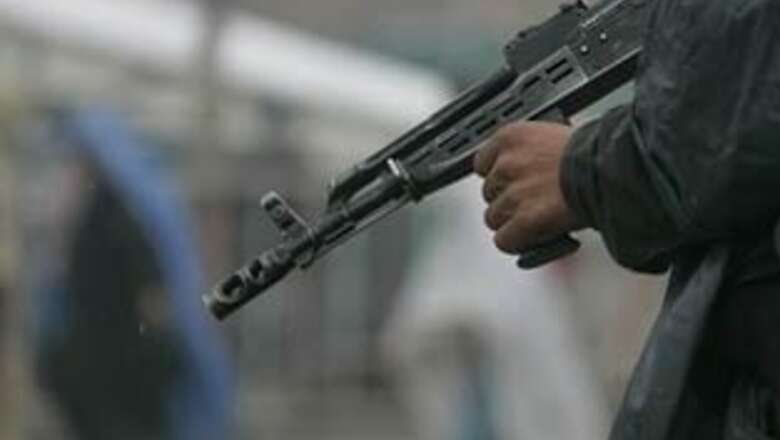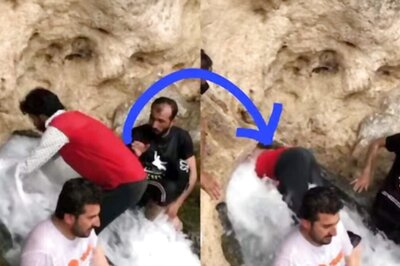
views
A day after Pakistani Taliban chief Baitullah Mehsud threatened to attack the White House, a US drone fired two missiles at the alleged hide-out of one of his commanders on Wednesday in a remote area of northwest Pakistan near the Afghan border, killing 14 people, intelligence and local officials said.
The son of a poor potato farmer who once worked as a fitness instructor, has grown into one of the most powerful militant leaders along the Pakistan-Afghan border, his rise fueled by alliances with al-Qaida and fellow Pakistani militants.
Mehsud is now seen as posing one of the greatest threats to President Barack Obama's push to stem Pakistan's slide toward instability and turn around the war in Afghanistan, analysts and officials said.
For years, the US had considered him a lesser threat than some of the other Pakistani Taliban, their Afghan counterparts and al-Qaida, because most of his attacks were focused inside Pakistan, not against US and NATO troops in Afghanistan.
Pakistani officials said the US has changed its view in recent months as Mehsud's power has grown and concerns mounted that increasing violence in Pakistan could destabilize the nuclear-armed ally.
"Mehsud poses a very real threat to stability and security in Pakistan and Afghanistan," said a terrorism expert at Harvard's Kennedy School, Eric Rosenbach.
The FBI said it was not aware of any imminent or specific threat to Washington, and Mehsud has not carried out any attacks outside the region.
Even so, Pakistani officials said the US has stepped up strikes targeting the Pakistani Taliban leader and his supporters in recent weeks.
Mehsud, who is in his 30s, has so far escaped unscathed and has said he will step up attacks in Pakistan if the US does not stop missile strikes along the Afghan border.
He said on Tuesday that his group carried out a deadly attack on a police academy in the eastern Pakistani city of Lahore in retaliation for the drone strikes. That attack on Monday left at least 12 people dead, including seven policemen.
Mehsud claimed responsibility for the Lahore attack and threatened Washington in a flurry of phone calls to various media outlets, but he usually relies on his spokesmen to handle the press, possibly for fear of being tracked.
Until recently, Mehsud had been virtually ignored as a target of US drone missiles that have struck the tribal regions with increasing regularity.
Pakistan has publicly criticized the US missile attacks, saying they violate the country's sovereignty and kill innocent civilians.
Privately, the Pakistani government tried to convince the US for months to target Mehsud, meeting resistance from American officials who felt other militants in the border region were more of a threat, said a former senior Pakistani government official.
He spoke on condition of anonymity because he was not authorised to talk to the media.
That perception has changed in the past few months, as Mehsud has strengthened his ties to al-Qaida and consolidated his power among fellow Pakistani militants, Pakistani military spokesman Maj Gen Athar Abbas said.
"I think they have now endorsed our view of him as a threat," Abbas added.
US intelligence has said al-Qaida has set up its operational headquarters in Mehsud's South Waziristan stronghold and the neighboring North Waziristan tribal area, both on the border with Afghanistan.
Obama said last week that al-Qaida was plotting attacks against the US and other countries from its sanctuaries in Pakistan near the Afghan border.
"When he (Mehsud) talks of attacking the United States and London he is talking for al-Qaida," said a retired Pakistani military officer and former frontier official, Mahmood Shah.
Mehsud has no record of attacking targets abroad, although he is suspected of being behind a 10-man cell arrested in Barcelona in January 2008 for plotting suicide attacks in Spain.
Pakistan's former government and the CIA have named him as the prime suspect behind the December 2007 killing of former Prime Minister Benazir Bhutto. He has denied a role.




















Comments
0 comment